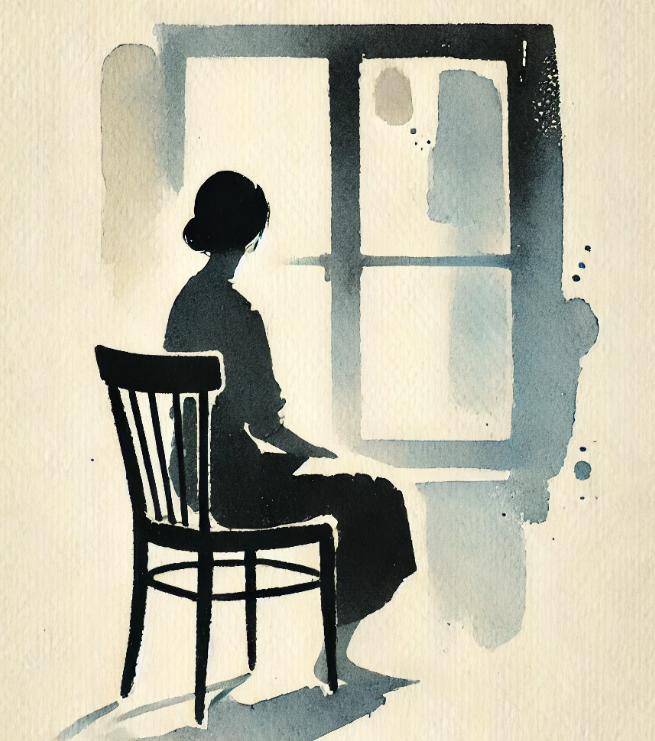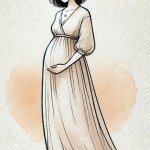
Navigating Sexual Well-being After Pregnancy Loss
Pregnancy loss is an experience that affects one in four women, yet its impact on sexual well-being is rarely discussed. Many couples face a confusing blend of grief, physical recovery, and emotional healing, and sexual relationships can feel like uncharted territory during this time. In fact, new research sheds light on how sexual well-being shifts in the weeks following a pregnancy loss and highlights the resilience many couples demonstrate as they navigate intimacy and connection after such a significant event.
If you or someone you know is struggling with the aftermath of a pregnancy loss, understanding these patterns can help to set expectations and foster communication. Let’s dive into the findings and unpack what they mean for sexual well-being and relationship health.
Sexual Satisfaction Rebounds with Time
The study, which followed 132 couples, explored how sexual satisfaction, desire, and distress changed between 10 and 25 weeks after a pregnancy loss. One encouraging finding is that, for most couples, sexual satisfaction gradually increased over time. It seems that even though a pregnancy loss is emotionally and physically taxing, many couples find their way back to a fulfilling sexual relationship.
Think about it this way: after a significant emotional or physical setback, it’s common for any area of life to take time to normalize. Sexual satisfaction is no different. As couples begin to heal together, sexual intimacy often becomes a way to reaffirm their bond. By 25 weeks post-loss, the study found that many couples reported higher sexual satisfaction, sometimes even surpassing pre-loss levels. This increase suggests that, for some, the shared experience of loss might strengthen their connection in ways they didn’t expect.
Sexual Desire Stays Stable—But Why?
Interestingly, while sexual satisfaction rebounded, sexual desire remained stable across the study period. In the initial weeks after a pregnancy loss, couples often report feeling emotionally and physically drained, which might affect the frequency or enthusiasm for sexual activity. You might expect sexual desire to slowly climb as partners begin to recover, but that wasn’t the case here.
One possible reason for this stability is that sexual desire is a complex emotion tied not just to physical well-being but also to emotional readiness. After a pregnancy loss, it can be hard for both partners to rekindle a desire for sex, not because they’re uninterested in each other, but because emotional scars take longer to heal than physical ones. It’s worth noting that sexual desire is highly personal—what feels like “normal” to one couple might feel very different to another.
So, what does this mean in real terms? If you’re not feeling a strong pull toward sex in the months following a loss, you’re not alone. And that’s okay. The research suggests that desire might not bounce back right away, but that doesn’t mean your relationship is on shaky ground. In fact, partners often stay emotionally close, even if their desire for sex doesn’t fully return right away.
Sexual Distress Decreases for Some—But Not All
Here’s where things get a little more nuanced: the study found that sexual distress—a term that refers to anxiety or concerns about sexual issues—decreased significantly for partners who weren’t pregnant. However, for those who had been pregnant, distress remained relatively stable.
This is a key point for couples to consider. Pregnancy loss can trigger different emotional responses in each partner. For someone who was pregnant, the distress might come from deeper worries about body image, the ability to conceive again, or even the fear of experiencing another loss. These worries can keep sexual distress high, even when the relationship remains strong. On the other hand, the partner who wasn’t pregnant may experience less of this specific worry, and therefore, their distress might fade as the couple’s physical intimacy returns to normal.
The Role of Grief
Grief plays a huge role in shaping the recovery process after a pregnancy loss. In the early weeks after the loss, both partners often feel the weight of grief heavily. However, just as sexual satisfaction increases with time, grief tends to decline. The study found that by 25 weeks post-loss, grief levels had decreased for both partners, although it remained higher for those who had been pregnant.
This aligns with what many therapists describe as the process of healing from any significant emotional loss. Over time, grief becomes more manageable. For couples, understanding that grief will naturally decline—and that it doesn’t need to be rushed—can help alleviate pressure to “get back to normal” too soon.
Interestingly, the study found that the level of grief a person experienced in the early weeks didn’t predict how their sexual well-being would change later on. This suggests that grief and sexual well-being may operate independently in some ways. So, while grief can feel overwhelming at first, it won’t necessarily dictate the long-term health of a couple’s sexual relationship.
What Does This Mean for You?
For couples experiencing pregnancy loss, these findings provide some reassurance. Sexual satisfaction tends to improve with time, and while sexual desire might not increase right away, it doesn’t mean the relationship is in trouble. Importantly, sexual distress often declines, especially for partners who weren’t pregnant, and grief becomes more manageable with time.
What can you take from this? Healing, both emotionally and physically, looks different for everyone. Some couples may find that sex becomes an important part of their healing process, while others might need more time before they feel comfortable with intimacy again. Communication is key—talk to your partner about how you’re feeling, both emotionally and physically. Knowing that ups and downs are normal can help you navigate the tricky path forward with more confidence.
Clinical Implications
For healthcare providers and therapists, the takeaway is clear: Don’t shy away from discussing sexual well-being with couples after a pregnancy loss. These conversations can provide much-needed reassurance. Clinicians can help couples understand that sexual satisfaction often increases over time, even if desire doesn’t immediately follow. And they can encourage partners to support one another as they heal, emotionally and physically.
In fact, simply bringing up the topic of sexual well-being can open the door for couples to discuss their feelings more openly. Whether it’s addressing grief, anxiety, or body image concerns, having these conversations can improve the overall well-being of both partners.
Conclusion: A Path to Healing
Pregnancy loss is a deeply personal experience, and its impact on sexual well-being can vary. However, the research is clear: Over time, many couples find that their sexual relationship improves, even if desire takes longer to return. Grief eases, and partners can often find their way back to a fulfilling connection. If you’re in this situation, give yourself permission to heal at your own pace and communicate openly with your partner. There’s no “right” timeline—just your timeline.
What about you? Have you noticed changes in your relationship following a loss? How have you and your partner navigated the emotional and physical challenges? Share your thoughts in the comments.




